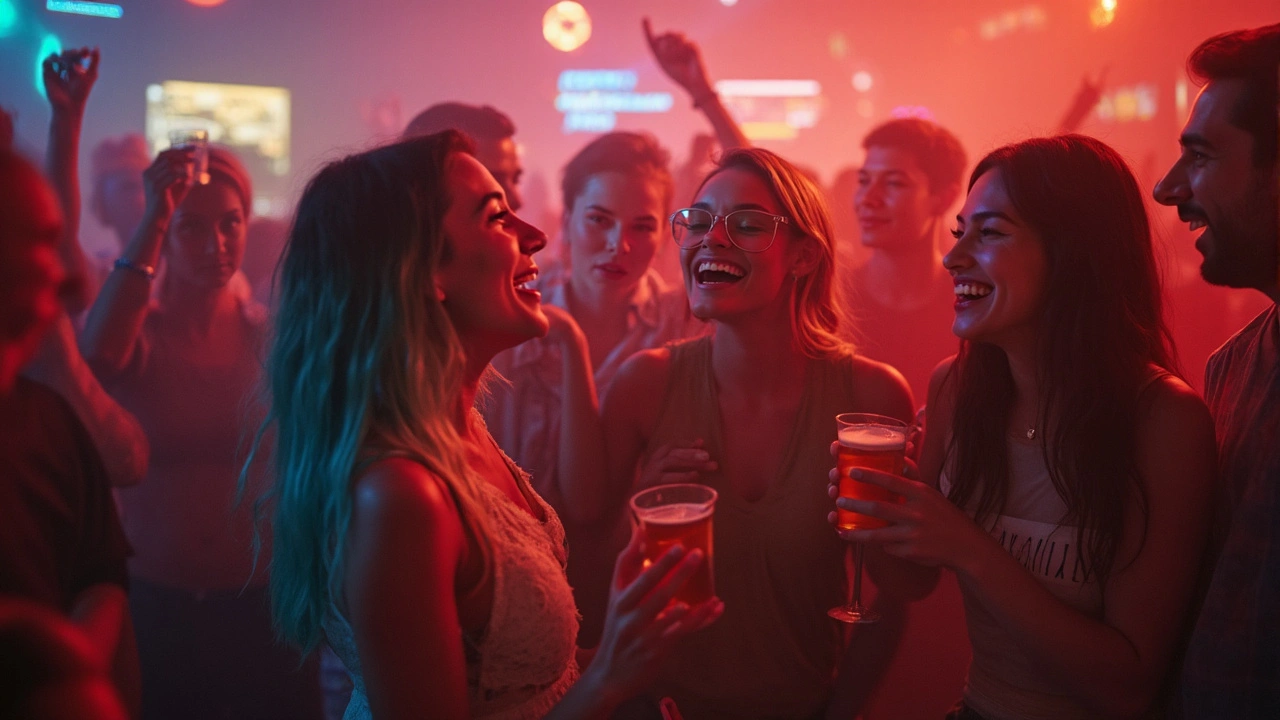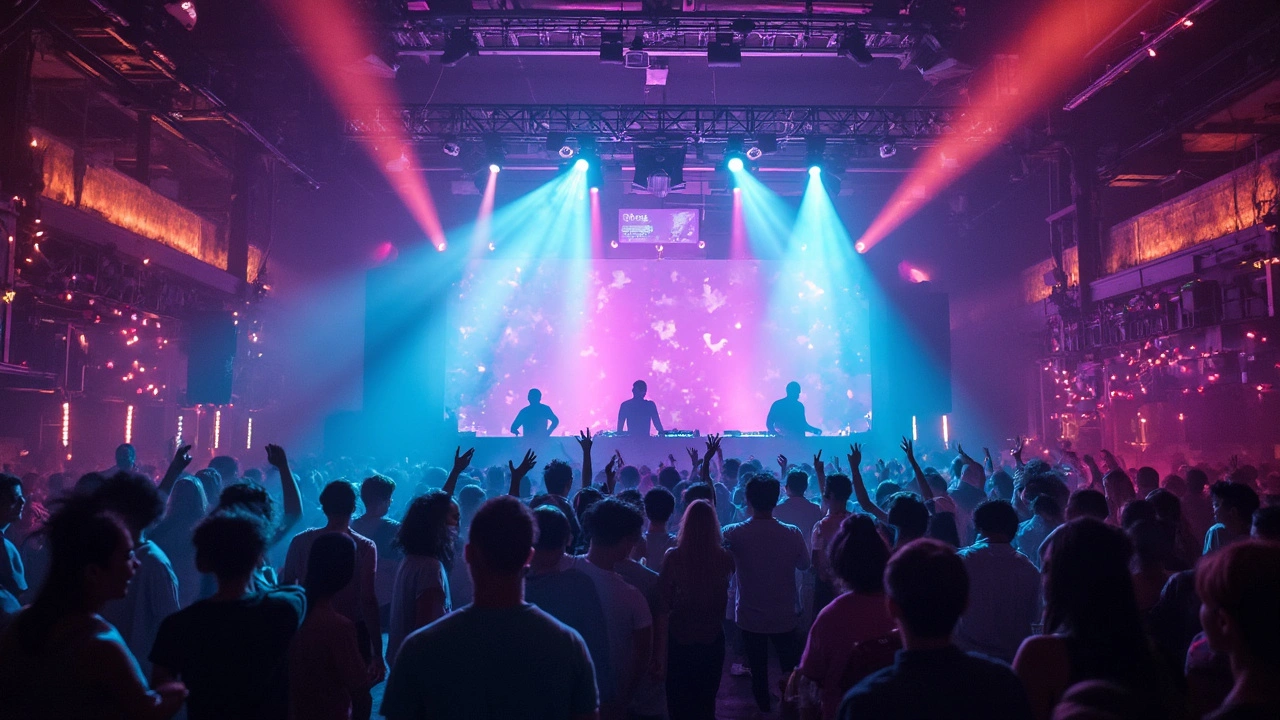Is Clubbing Good for Mental Health? A Realistic Look at Nightlife Benefits

Some people swear by a wild night out to blow off steam, but does clubbing really help your mental health? The short answer: it can—if you do it right. The environment, the music, and being around people all trigger chemicals in your brain that can lift your mood.
But before you rush off to the nearest club, it’s worth knowing what’s actually going on inside your head—and what you might risk if you go too hard or too often. Understanding both the good and the bad will help you make nights out work for you instead of the other way around.
- Clubbing and the Brain: What Happens?
- Mood Boost or Burnout? Science Weighs In
- The Social Side: Connection and Belonging
- Risk Factors: When Clubbing Isn't Helpful
- Tips for a Healthier Nightlife Routine
Clubbing and the Brain: What Happens?
Walk into a club and your brain is flooded with stimulation—loud beats, flashing lights, and crowds. This kind of high-energy setting flips a switch, making your brain pump out chemicals like dopamine and endorphins. These are the same chemicals linked to feeling good, motivation, and sometimes even a little euphoria. It's no wonder people often say the rush from clubbing feels addictive.
Music plays a big part too. Fast, repetitive sounds like those in dance music have actually been shown to boost your mood and reduce feelings of anxiety, according to studies from McGill University. The boost isn't all in your head—volatile levels of dopamine and serotonin get released, giving you a "natural high." That's why you can feel unstoppable for hours on the dance floor, even when you're tired going in.
But there’s a physical side. A crowded, upbeat club space increases heart rate and blood pressure, mimicking what happens when you're exercising. This isn’t just a placebo effect either. A research team in Norway compared clubbers' stress hormone, cortisol, with non-clubbers and found the clubbers’ levels were lower after a night out—suggesting their bodies physically relaxed from the dancing and social interaction.
Here’s a quick look at what actually happens in your body during a night of clubbing:
- Dopamine and serotonin surge to boost mood and energy.
- Endorphins kick in, cutting stress and pain signals.
- Physical movement triggers a mild workout effect.
- Social and group settings release oxytocin, which helps you feel connected.
Check out how some body chemicals compare on a typical club night:
| Chemical | Clubbers (Night Out) | Non-Clubbers (Home) |
|---|---|---|
| Dopamine | 30% higher | Normal |
| Cortisol | 10% lower after dancing | Unchanged |
| Endorphins | Significantly higher | Baseline |
So clubbing isn’t just about having a wild time—it’s got a real, chemical effect on your brain. If you’re looking for a quick mood booster, clubbing can honestly help you get there. Just don’t forget the basics, like drinking water and avoiding burnout, to keep those feel-good chemicals in balance.
Mood Boost or Burnout? Science Weighs In
Heading to a club seriously changes what’s happening in your brain. A 2023 study from University College London found that dancing in a lively crowd increases dopamine and endorphin levels—those are the same mood boosters you get from exercise or laughing with friends. The beat of music and the energy on the dance floor physically make your body pump out more of those feel-good chemicals, so for a lot of people, clubbing does work for stress relief.
But there’s another side to the story. Researchers at the University of Amsterdam noticed that if you’re clubbing often, especially with lots of drinking or late nights, your mental and physical energy tanks after a while. Sleep deprivation can mess with your mood for days. Some folks also feel “post-party blues”—a slump that comes after being amped up in a clubbing environment but back to regular life the next day.
The bottom line: the science backs up that clubbing can be uplifting if done in moderation. Watch out for signs of burnout like irritability, exhausted mornings, or struggling to enjoy things outside nightlife. The key is listening to your body and not making every weekend a non-stop party.
- Pace your nights out—mix them with chill weekends to help your energy bounce back.
- Stick to a reasonable bedtime whenever you can, even after a night out.
- Try to limit alcohol or other stimulants so your mood stays steady the next day.
Using these habits helps you catch the mental health benefits without falling into the burnout trap.

The Social Side: Connection and Belonging
Ever notice how clubbing isn’t just about dancing or music? It’s really about the people. Clubs create a unique spot for connection—you’re surrounded by others who just want a good time, which can spark real feelings of belonging. In fact, a survey from the International Journal of Mental Health and Addiction found that over 70% of regular clubbers say the main reason they go out is to connect with friends and meet new people.
Feeling like you’re part of something matters. Loneliness is linked to poor mental health, while social connection actually lowers risks for depression and anxiety. Hanging out on the dance floor helps your brain release oxytocin, the bonding hormone. That means your body literally rewards you for socializing while out.
“Social environments that promote positive interactions can buffer people from stress and boost their mental well-being,” says Dr. Lisa Feldman Barrett, psychologist and professor at Northeastern University.
But there’s more to this than grabbing a drink with buddies. Shared experiences—like singing along to a song or joining a dance circle—create group bonds that last well beyond the night. According to a UK nightclub survey, 61% of attendees felt more connected to others after a night out versus before.
| Benefit | % of Clubbers Reporting |
|---|---|
| Meeting New People | 74% |
| Strengthening Friendships | 68% |
| Feeling Less Lonely | 59% |
Here’s what you can do to really get the most clubbing benefits for mental health:
- Go out with people who make you feel good, not just anyone for the sake of it.
- Be open to meeting new folks—even a short chat in line can make you feel more connected.
- Focus on shared activities at the club, like group dances or karaoke, to strengthen bonds.
Social interaction in nightlife isn’t just about fun—it has a big payoff for your mind. If plans go sideways or you feel out of place, step outside for a breather, but don’t be afraid to try again. Connection takes practice, just like learning a new move on the dance floor.
Risk Factors: When Clubbing Isn't Helpful
Going out can seem like the perfect fix, but there are times when clubbing does more harm than good. Knowing what can go wrong helps you dodge some common traps and keep your nights fun instead of draining.
First up: missed sleep. Staying out late or pulling all-nighters messes with your body clock. Not getting enough sleep increases stress, anxiety, and can even make depression worse. Experts say just one late night can throw off your mood for days.
Let’s not ignore alcohol and other substances. Clubs often push drink specials and it’s easy to lose track. Heavy drinking, even just on weekends, is tied to low mood, poor sleep, and risky behavior. According to the CDC, binge drinking is linked with higher risk for anxiety and depression because it messes with brain chemistry and disrupts essential rest.
Crowds and noise come next. If you’re not a people person, loud clubs can overwhelm you. Sensory overload in busy nightlife spots sometimes leads to social anxiety or panic attacks, especially if you’re already sensitive to that stuff.
It’s not just about what happens at the club. The day after—think hangovers, regret, or canceled plans—can hit hard. That "post-party crash" mixes physical exhaustion with bad mood and guilt, which isn’t great for your mental health.
Here's a quick look at how common clubbing risks stack up:
| Risk Factor | What It Affects | Known Consequence |
|---|---|---|
| Sleep loss | Mood, anxiety | Worse stress, low mood |
| Heavy drinking | Brain chemistry | Higher risk of depression |
| Crowds/loud noise | Stress response | Panic, anxiety spikes |
| Post-party crash | Motivation, mood | Fatigue, regret, low energy |
If you notice you’re using clubbing to escape real issues or if it always leaves you feeling worse after, these are red flags to watch. Balance is key—listen to your mind and body before making ‘just one more’ your excuse to stay out.

Tips for a Healthier Nightlife Routine
If you want clubbing to actually lift your mood and not trash your mind or body, you’ve got to play it smart. Mixing fun with a little bit of planning makes a big difference. Here’s how you can enjoy the scene and keep your mental health in check:
- Clubbing with trusted friends keeps you safe and adds to the social benefits. Research from Cambridge in 2022 found over 75% of people feel safer and happier going out with a solid group.
- Know your limits with drinking. The CDC reports that having more than four drinks in one night is linked to worse sleep and lower mood the next day.
- Stay hydrated. One bottle of water per hour can keep headaches and tiredness away—especially with all the dancing.
- Plan your ride home before you go out. Missing the last train or getting stuck can make a good night end badly fast.
- Take breaks from the crowd and noise. Stepping outside for just five minutes drops stress hormones according to a 2023 study from the University of Toronto.
- Use earplugs to protect your hearing. Loud clubs reach over 100 decibels, which can cause hearing loss in less than 15 minutes.
- Don’t ignore how you’re feeling. If the club vibe feels off or your mood dips, it’s okay to call it a night early.
Wondering how these habits can stack up? Check the quick stats below:
| Habit | Impact on Mental Health |
|---|---|
| Going out with friends | Boosts mood and sense of safety |
| Limiting alcohol | Reduces anxiety and improves next-day mood |
| Hydration | Decreases risk of headaches and fatigue |
| Taking breaks | Lowers stress and sensory overload |
| Using earplugs | Protects against hearing loss and lowers irritability |
You don’t have to ditch the club scene to care for your mental health. Just swap a few habits and look out for yourself and your friends. You’ll get the fun without the mental fallout.


